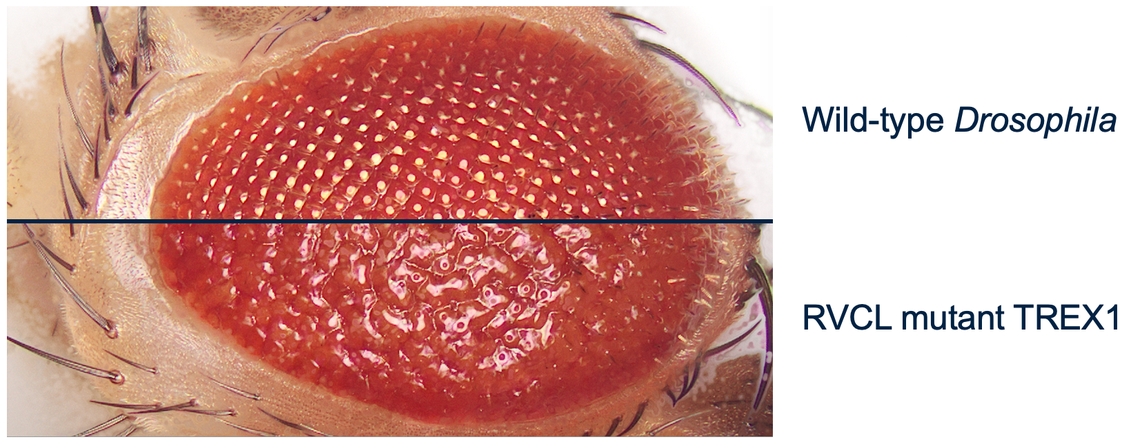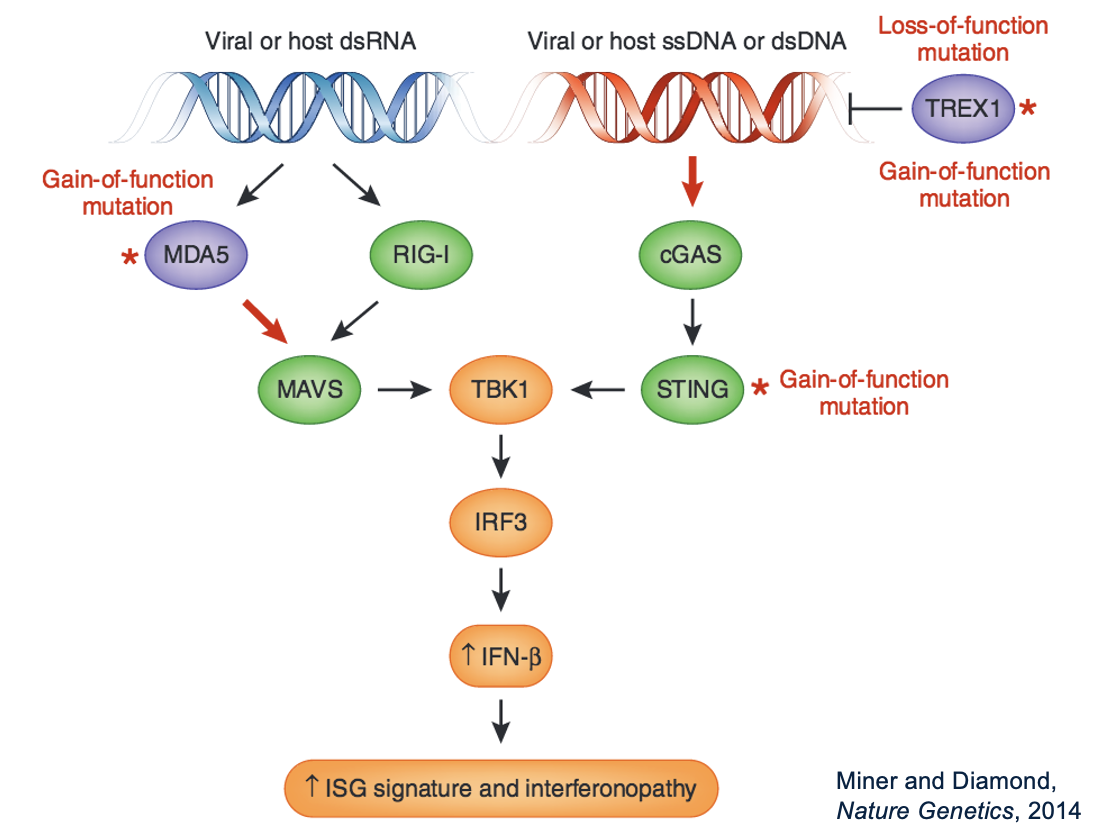The Miner Lab studies rare diseases and cytosolic nucleic acid sensors
Mission: We seek to unravel biological mysteries and to cure devastating, rare human diseases.
Vision: To make fundamental discoveries leading to highly effective personalized medicine
Values: Teamwork, hard work, inclusion, and creativity

Rare autoimmune and autoinflammatory diseases
A major priority for our laboratory is to define mechanisms of rare rheumatic diseases, and to develop and test personalized therapies for those diseases. In particular, we focus our studies on cytosolic nucleic acid-sensing pathways. We currently have active collaborations with multiple investigators to develop personalized medicines for rare diseases. This includes collaborators at multiple institutions around the world.

Retinal vasculopathy with cerebral leukoencephalopathy (RVCL or RVCL-S)
RVCL is a rare disease caused by mutations in the TREX1 gene. Dr. Miner directs the RVCL Research Center at Penn and works together with national and international collaborators to care for patients with RVCL. Patients with RVCL (also known as RVCL-S, CRV, HERNS, or CHARIOT), develop brain lesions causing dementia, retinal lesions causing blindness, kidney disease, liver disease, and premature death in 100% of affected individuals. Working with our collaborators in Japan, France, and Australia, we discovered that RVCL is a DNA damage syndrome that mimics radiation injury. More recently, we have developed novel therapies that prevent the damaging effects of RVCL-causing mutations in model systems.


